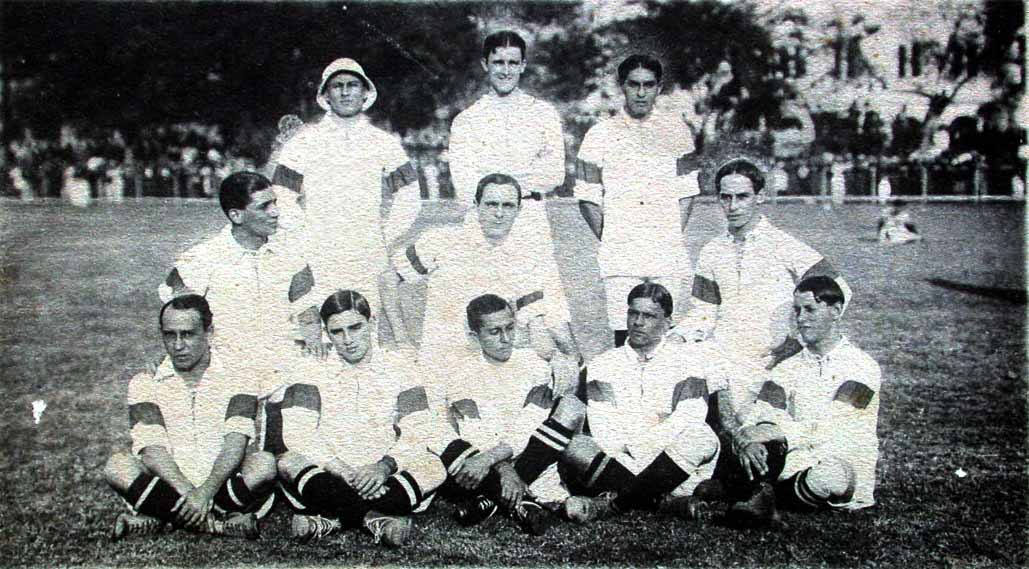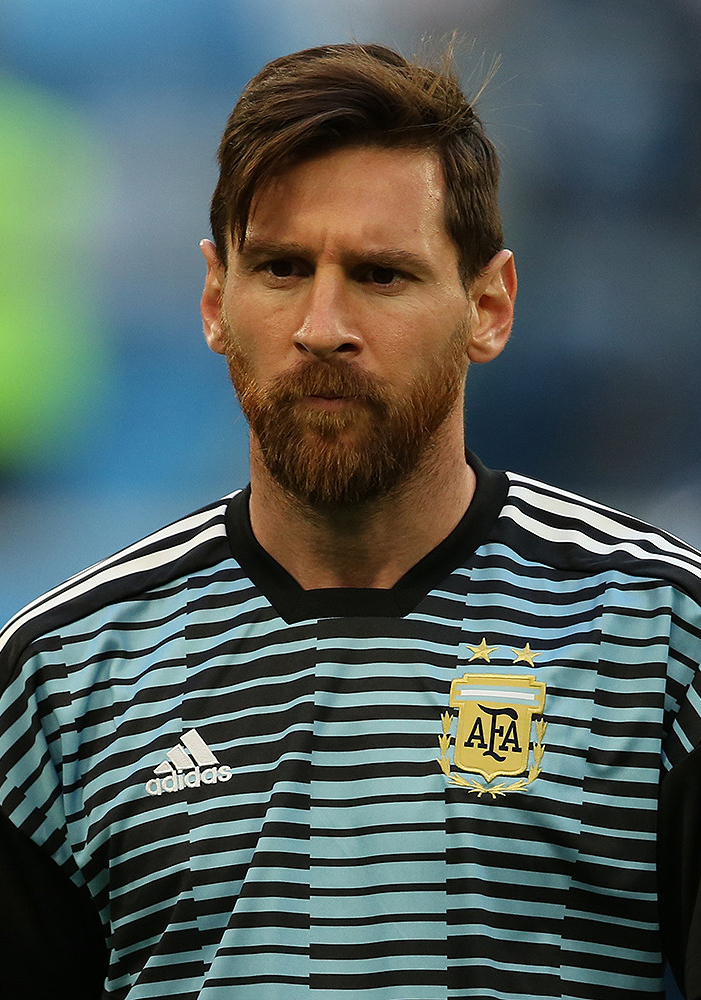|
Ivo Viktor
Ivo Viktor (born 21 May 1942 in Křelov) is a Czech former football goalkeeper. He played for Czechoslovakia, representing his country on 63 occasions between 1966 and 1977, taking part in the 1970 FIFA World Cup and winning the 1976 European Championship. Regarded as one of the best goalkeepers of his generation in Europe in his prime, he placed third in the 1976 Ballon d'Or, and was a five-time winner of the Czechoslovak Footballer of the Year award, and a two-time winner of the European Goalkeeper of the Year award. Club career In his country, Viktor played for several clubs, including Dukla Prague, where he remained for 13 years, winning several titles. International career Viktor's senior national team debut came in 1966 against Brazil at the Maracanã stadium. He represented his nation at the 1970 FIFA World Cup. He was one of the brightest stars at UEFA Euro 1976, where he helped Czechoslovakia win the championship, producing notable performances and key saves agai ... [...More Info...] [...Related Items...] OR: [Wikipedia] [Google] [Baidu] |
1970 FIFA World Cup
The 1970 FIFA World Cup was the ninth edition of the FIFA World Cup, the quadrennial international football championship for men's senior national teams. Held from 31 May to 21 June in Mexico, it was the first World Cup tournament held outside Europe and South America, and it was also the first held in North America. Teams representing 75 nations from all six populated continents entered the competition, and its qualification rounds began in May 1968. Fourteen teams qualified from this process to join host nation Mexico and defending champions England in the 16-team final tournament. El Salvador, Israel and Morocco made their debut appearances at the final stage. The tournament final had Brazil battle Italy, another FIFA two-time champion (and UEFA Euro 1968 winner), 4–1. Furthermore, during the tournament, Brazil also had to defeat another two-time champion (who were) South American champions Uruguay, by 3–1 in the semi-final, and defending champions England 1–0 i ... [...More Info...] [...Related Items...] OR: [Wikipedia] [Google] [Baidu] |
Brazil National Football Team
The Brazil national football team ( pt, Seleção Brasileira de Futebol), nicknamed ''Seleção Canarinho'' (‘Canary Squad’, after their bright yellow jersey), represents Brazil in men's international football and is administered by the Brazilian Football Confederation (CBF), the governing body for football in Brazil. They have been a member of FIFA since 1923 and a member of CONMEBOL since 1916. Brazil is the most successful national team in the FIFA World Cup, being crowned winner five times: 1958, 1962, 1970, 1994 and 2002. The ''Seleção'' also has the best overall performance in the World Cup competition, both in proportional and absolute terms, with a record of 76 victories in 114 matches played, 129 goal difference, 247 points, and 19 losses. It is the only national team to have played in all World Cup editions without any absence nor need for playoffs, and the only team to have won the World Cup in four different continents: once in Europe ( 1958 Sweden), ... [...More Info...] [...Related Items...] OR: [Wikipedia] [Google] [Baidu] |
Living People
Related categories * :Year of birth missing (living people) / :Year of birth unknown * :Date of birth missing (living people) / :Date of birth unknown * :Place of birth missing (living people) / :Place of birth unknown * :Year of death missing / :Year of death unknown * :Date of death missing / :Date of death unknown * :Place of death missing / :Place of death unknown * :Missing middle or first names See also * :Dead people * :Template:L, which generates this category or death years, and birth year and sort keys. : {{DEFAULTSORT:Living people 21st-century people People by status ... [...More Info...] [...Related Items...] OR: [Wikipedia] [Google] [Baidu] |
1942 Births
Year 194 ( CXCIV) was a common year starting on Tuesday (link will display the full calendar) of the Julian calendar. At the time, it was known as the Year of the Consulship of Septimius and Septimius (or, less frequently, year 947 '' Ab urbe condita''). The denomination 194 for this year has been used since the early medieval period, when the Anno Domini calendar era became the prevalent method in Europe for naming years. Events By place Roman Empire * Emperor Septimius Severus and Decimus Clodius Septimius Albinus Caesar become Roman Consuls. * Battle of Issus: Septimius Severus marches with his army (12 legions) to Cilicia, and defeats Pescennius Niger, Roman governor of Syria. Pescennius retreats to Antioch, and is executed by Severus' troops. * Septimius Severus besieges Byzantium (194–196); the city walls suffer extensive damage. Asia * Battle of Yan Province: Warlords Cao Cao and Lü Bu fight for control over Yan Province; the battle lasts f ... [...More Info...] [...Related Items...] OR: [Wikipedia] [Google] [Baidu] |
IFFHS World's Best Goalkeeper
The IFFHS World's Best Goalkeeper is a football award given annually since 1987 to the best goalkeeper of the year as voted by the International Federation of Football History & Statistics (IFFHS). The votes are cast by IFFHS's editorial staff as well as experts from different continents. The winner is announced at the end of the year. The winning goalkeeper is awarded a gold trophy at the ''World Football Gala''. Italy's Gianluigi Buffon, Spain's Iker Casillas and Germany's Manuel Neuer have each won the award a record five times; Casillas won the award for five consecutive years between 2008 and 2012. Below is a list of the previous winners since the first award in 1987, which was won by Belgium's Jean-Marie Pfaff. Bayern Munich is the team with the most wins, with a total of nine. Men's winners Gianluigi Buffon has made Top 3 an unprecedented 14 times (record). This includes: 5 wins (joint record with Neuer & Casillas), 6 Runner-up (record) & 3 3rd placed. List of winne ... [...More Info...] [...Related Items...] OR: [Wikipedia] [Google] [Baidu] |
1976 Ballon D'Or
The 1976 Ballon d'Or, given to the best football player in Europe as judged by a panel of sports journalists from UEFA member countries, was awarded to the West German defender Franz Beckenbauer on 28 December 1976. There were 26 voters, from Austria, Belgium, Bulgaria, Czechoslovakia, Denmark, East Germany, England, Finland, France, Greece, Hungary, Italy, Luxembourg, the Netherlands, Norway, Poland, Portugal, Republic of Ireland, Romania, Soviet Union, Spain, Sweden, Switzerland, Turkey, West Germany and Yugoslavia. Rankings References External links ''France Football'' Official Ballon d'Or page {{Ballon d'Or recipients 1976 Events January * January 3 – The International Covenant on Economic, Social and Cultural Rights enters into force. * January 5 – The Pol Pot regime proclaims a new constitution for Democratic Kampuchea. * January 11 – The 1976 ... 1976–77 in European football ... [...More Info...] [...Related Items...] OR: [Wikipedia] [Google] [Baidu] |
UEFA European Football Championship
The UEFA European Football Championship, less formally the European Championship and informally the Euro, is the primary association football tournament organised by the Union of European Football Associations (UEFA). The competition is contested by UEFA members' senior men's national teams, determining the continental champion of Europe. It is the second-most watched football tournament in the world after the FIFA World Cup. The Euro 2012 final was watched by a global audience of around 300 million. The competition has been held every four years since 1960, except for 2020, when it was postponed until 2021 due to the COVID-19 pandemic in Europe, but kept the name Euro 2020. Scheduled to be in the even-numbered year between FIFA World Cup tournaments, it was originally called the European Nations' Cup, changing to the current name in 1968. Since 1996, the individual events have been branded as "UEFA Euro ear''". Before entering the tournament, all teams other than the host ... [...More Info...] [...Related Items...] OR: [Wikipedia] [Google] [Baidu] |
Czechoslovak Cup
The Czechoslovak Cup () was a football cup competition held in Czechoslovakia. It was officially created in 1960 and folded in 1993 with the split between Czech Republic and Slovakia. The cup was played throughout Czechoslovakia until 1968–69. From 1969–70, the cup was played between the winners of Czech Cup and Slovak Cup. Sparta Prague and Dukla Prague were the most successful clubs winning both 8 times. In total, Czech teams lifted the Cup 20 times, and Slovak teams 13 times. The origins of the cup are in unofficial tournaments played in 1950–51, 1951–52, 1955 and 1959–60 season. Finals Winners * Dukla Prague 8 * Sparta Prague 8 (including as Spartak Sokolovo) * Slovan Bratislava 5 * Spartak Trnava 4 * Baník Ostrava 3 * Lokomotíva Košice 2 * DAC Dunajská Streda 1 * 1. FC Košice 1 * FC Tescoma Zlín 1 (as TJ Gottwaldov) See also * Czechoslovak First League * Czech Cup * Slovak Cup * Czechoslovak Supercup, ''de facto'' revival as a friendly between the C ... [...More Info...] [...Related Items...] OR: [Wikipedia] [Google] [Baidu] |
Czechoslovak First League
The Czechoslovak First League ( cs, 1. fotbalová liga, sk, 1. futbalová liga) was the premier football league in the Czechoslovakia from 1925 to 1993, with the exception of World War II. Czechoslovakia was occupied by German forces who formed Gauliga Sudetenland and Gauliga Böhmen und Mähren leagues on occupied territories. Until the 1934-35 season, no teams from Slovakia participated in the league. Czechs were allowed to run their own league in the Protectorate of Bohemia and Moravia, while Slovaks were granted their own independent Slovak State and created their own league. After the World War II the league was recreated. Description The league was dominated by clubs from Prague with Sparta Prague winning 19 titles, Dukla Prague 11 and Slavia Prague 9. The attendance record for the league was set on 4 September 1965, when 50,105 spectators attended a match between rivals Sparta and Slavia in Prague. The Czechoslovak First League was succeeded in 1993 by the Czech F ... [...More Info...] [...Related Items...] OR: [Wikipedia] [Google] [Baidu] |
1990–91 Czechoslovak First League
Statistics of Czechoslovak First League in the 1990–91 season. Roman Kukleta was the league's top scorer with 17 goals. Overview It was contested by 16 teams, and Sparta Prague won the championship. Stadia and locations League standings Results Top goalscorers References Czechoslovakia - List of final tables (RSSSF) {{DEFAULTSORT:1990-91 Czechoslovak First League Czechoslovak First League seasons Czech Czech may refer to: * Anything from or related to the Czech Republic, a country in Europe ** Czech language ** Czechs, the people of the area ** Czech culture ** Czech cuisine * One of three mythical brothers, Lech, Czech, and Rus' Places * Czech, ... 1990–91 in Czechoslovak football ... [...More Info...] [...Related Items...] OR: [Wikipedia] [Google] [Baidu] |
Ballon D'Or (1956–2009)
The Ballon d'Or (; ) is an annual football award presented by French news magazine '' France Football'' since 1956. Between 2010 and 2015, in an agreement with FIFA, the award was temporarily merged with the FIFA World Player of the Year (founded in 1991) and known as the FIFA Ballon d'Or. That partnership ended in 2016, and the award reverted to the Ballon d'Or, while FIFA also reverted to its own separate annual award The Best FIFA Men's Player. The recipients of the joint FIFA Ballon d'Or are considered as winners by both award organisations. Conceived by sports writers Gabriel Hanot and Jacques Ferran, the Ballon d'Or award honours the male player deemed to have performed the best over the previous year, based on voting by football journalists, from 1956 to 2006. Originally, it was awarded only to players from Europe and widely known as the European Footballer of the Year award. In 1995, the Ballon d'Or was expanded to include all players from any origin that have been ... [...More Info...] [...Related Items...] OR: [Wikipedia] [Google] [Baidu] |



.jpg)
